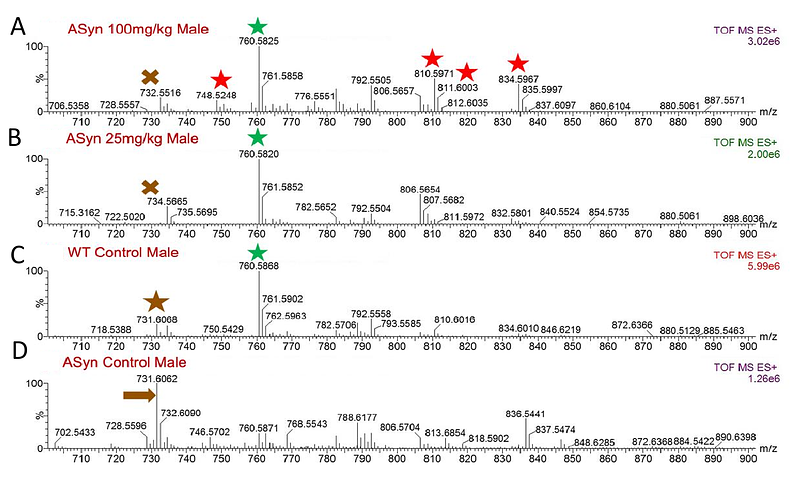Gardenin A improves cognitive and motor function in A53T-α-syn mice

Gardenin A improves cognitive and motor function in A53T-α-syn mice
Hack, W.; Gladen-Kolarsky, N.; Chatterjee, S.; Lang, Q.; Maitra, U.; Ciesla, L.; Gray, N. E.
AbstractOxidative stress and neuroinflammation are widespread in the Parkinsons disease (PD) brain and contribute to the synaptic degradation and dopaminergic cell loss that result in cognitive impairment and motor dysfunction. The polymethoxyflavone Gardenin A (GA) has been shown to activate the NRF2-regulated antioxidant pathway and inhibit the NFkB-dependent pro-inflammatory pathway in a Drosophila model of PD. Here, we evaluate the effects of GA on A53T alpha-synuclein overexpressing (A53TSyn) mice. A53TSyn mice were treated orally for 4 weeks with 0, 25, or 100 mg/kg GA. In the fourth week, mice underwent behavioral testing and tissue was harvested for immunohistochemical analysis of tyrosine hydroxylase (TH) and phosphorylated alpha synuclein (pSyn) expression, and quantification of synaptic, antioxidant and inflammatory gene expression. Results were compared to vehicle-treated C57BL6 mice. Treatment with 100 mg/kg GA improved associative memory and decreased abnormalities in mobility and gait in A53TSyn mice. GA treatment also reduced cortical and hippocampal levels of pSyn and attenuated the reduction in TH expression in the striatum. Additionally, GA increased cortical expression of NRF2-regulated antioxidant genes and decreased expression of NFkB-dependent pro-inflammatory genes. GA was readily detectable in the brains of treated mice and modulated the lipid profile in the deep gray brain tissue of those animals. While the beneficial effects of GA on cognitive deficits, motor dysfunction and PD pathology are promising, future studies are needed to further fully elucidate the mechanism of action of GA, optimizing dosing and confirm these effects in other PD models.